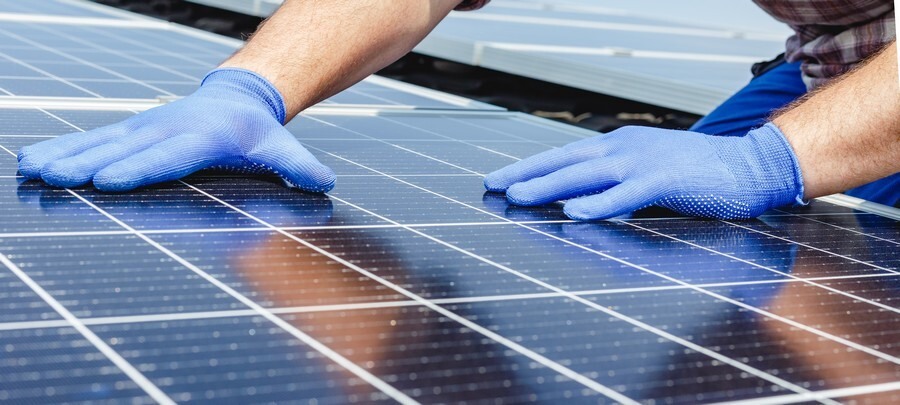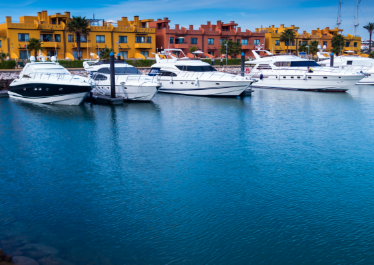Solar panels, alternators, chargers... Which solutions to charge my batteries on my boat or RV’s?

If there are several solutions to produce electricity on board a boat or a van, one of the factors to take into account is the protection of the batteries. Solar panels, alternators, chargers... an overview of these technologies and their ability to charge your batteries while protecting them.
Determining your wattage requirements : a crucial first step before sizing the battery charging system
Before renewing your battery bank, you must first determine your wattage requirements. This first step is essential and consists in calculating the daily electrical consumption on board or van. From this calculation, you will be able to define the ideal size of your service battery pack.
To carry out a wattage requirement, the electrical consumption of each device must be estimated in number of Amperes or Watt consumed per hour, depending on the value chosen. Many tools are available on line to assist you on this.
This electrical balance will then be used to size your battery charging system and to choose the charging solution best suited to your needs. Shore charger, alternator, solar panels, wind turbine, hydro generator, fuel cell... The charging of the batteries can be achieve in different ways. However, each of these charging solutions has advantages and disadvantages and costs of use.
What are the different ways of charging?
The shore power charger: an essential for boats and RV’s
If properly sized, a shore power charger can charge the batteries of your boat or van overnight. All this, while spreading out the instantaneous consumption on board.
For optimal protection of your batteries, manufacturers recommend a charging power of between 20% and 25% of the house batteries capacity. However, you should bear in mind that the charging time with this type of charger depends essentially on the current available from marina power product. Thus, your boat will have to be at the quay to be able to benefit from a 220 V power supply. Some shore power chargers can derate their capacity in order to match the amperage available.
The shore power charger is an excellent system for charging, capable of managing the self-discharge of batteries, silent and independent of weather conditions. Inexpensive, it allows to recharge the batteries to 100% but requires an AC external source.
The alternator and regulator, a smart investment
Essential part of your boat or vehicle's main diesel or gas engine, the alternator starts charging the battery as soon as engine starts, regardless conditions. However, standard alternators with an inboard engine are not always sufficient to charge the entire battery bank. They are often just powerful enough to charge the starter battery and power small DC devices, and therefore need to be replaced by a more powerful model. On latest Euro 6 standards vehicle fitted with smart alternator it is important to install a DC/DC booster to charge service battery.
Adding for example, a 100 or 150 Amp alternator equipped with a smart external regulator delivering a 3-phase charge, will fully charge batteries with 4 or 8 hours of engine time based on the battery capacity in Ah.
The installation of an alternator & multi stage regulator set will cost you from 1 000 € to 2 500€ . On the downside, it is worth noting that with this type of system, charging with the engine off is impossible.
Charge your batteries thanks to gasoline or diesel generators (gensets) for large installation or emergency solutions
Depending on their size, gasoline or diesel generators produce up to 100KW. Standalone genset are dedicated for large yacht and camper van. Installation are complex and expensive with dedicated fuel tank, exhaust, start battery and cooling system. AC power will run all AC equipment including aircon, battery charger, galley, watermarker…
Portable invertor generator can provide a reliable, efficient and cost effective power unit for van, camper or boat. With a AC power rating between 1 and 3 KW , these generators are silent, thanks to a protective soundproof casing and lightweight (20Kg for 2KW). Power outlets includes dual AC ports and 12V dc port intended for direct charging of lead-acid batteries for example. Gas tank capacity is enough for 2 / 3 hours running depending on load. Price range goes from 1000€ to 3000€ depending the power. On recent models the equipment can be controlled via a smartphone application.
Installing solar panels, a solution with variable results
A photovoltaic (PV) solar panel is composed of multiple PV cells usually small and producing about 1 or 2 watts of power each. To increase the power output of PV cells, they are connected together in chains to form larger units known as modules or panels. The installation of solar panel kit is quite affordable - 400 € for a 110W and 1 000€ for a 400W- and has the advantage of eliminating the cost of buying fuel. Another advantage is that photovoltaic panels are completely silent.
However, optimal sunlight conditions, are necessary to get full power from installation. This is the disadvantage of these panels, whose operation is highly dependent on weather conditions and installations. Solar panel kit can produce from 5 Amp / Hour till 30 Amp / Hour on a sunny day. It is equivalent to a small or medium shore power charger. You will need a large surface area on your boat or vehicle to install this type of equipment. Minimum surface require is 1 sqm² for an average of 100W rated power.
The fuel cell: efficient but expensive
Fuel cell technology operates like a battery with an anode and cathode. It is an electromechanical cell relying on hydrogen or methanol as fuel source. Fuel cell operating with methanol are now popular on boat and vehicle. Direct methanol fuel cell (DMFC) uses the electrochemical transformation of water and methanol at the anode, and oxygen at the cathode, with only water and little carbon dioxide being released. Fuel cells will allow you to charge the batteries of your boat or RV’s to 100%. The fuel cell has the advantage of being non-polluting, silent and totally free of weather conditions. Standard portable fuel cells available for van, camper of boat produces from 40 to 125W max power.
These equipment are lightweight less than 10 Kg excluding fuel tank which is important on RV’s. Price of a fuel cell goes from 2500 to 4000 € based on power , with a fairly very low fuel cost. 60€ (10 Liters) is enough to power a mid-size camper during 3 to 4 weeks.
Hydro generators, a good charging solutions for long sailing
Installed either on the transom or under the hull of the sailing boat, the hydro generators consist of an alternator placed on an axis, whose movement is activated by a propeller immersed in the back of the boat. The energy production of this type of generators depends on the speed of the boat and oscillates around 10A. Their charging power is between 0 and 120 Ah/day and varies according to the boat speed and will be available even during night or cloudy days. A boat at anchor will no produce power.
During long cruise, the boat sail several days in a row and the hydro generator is active 24 hours a day. Moreover, this equipment is silent and allows you to recharge the batteries while sailing. Thanks a very efficient design these equipment produce even very little drag. Their price may vary from 3 000€ to 6 500€ and such an installation does not require additional fuel.

Wind Turbines: inexpensive equipment, but they can be noisy
Virtually unlimited and free power source but totally dependent of the wind. Production will vary on wind speed and wind turbine specification (diameter, number of blades…) from 0 to 400 Ah/day. To increase this production or to try to reach energy autonomy on a pleasure boat, it is possible to install two wind turbines. However, the installation and balancing must be done with great care. Indeed, the propellers of the wind turbines can cause whistling and vibrations on the whole boat. The price of such equipment is between 1000 and 2500 € and does not require any additional cost for fuel.
As you can see, each charging solution has its advantages and disadvantages. To choose a suitable charging system, you should therefore take into account the budget you wish to allocate to your charging equipment, the space available on board the vehicle, as well as the energy requirements and their translation into battery capacity. Even if it means combining different installations. Think hybrid solutions ! If possible a mix of power source will be the best option. Solar + Wind or Solar + Hydro for example.
Dolphin Charger designs, manufactures and distributes a complete range of robust and intelligent energy conversion solutions. This marine and mobile specialist offers 4 ranges of battery chargers, from 10 to 100A. A project ? A question? Tell us about your needs.


